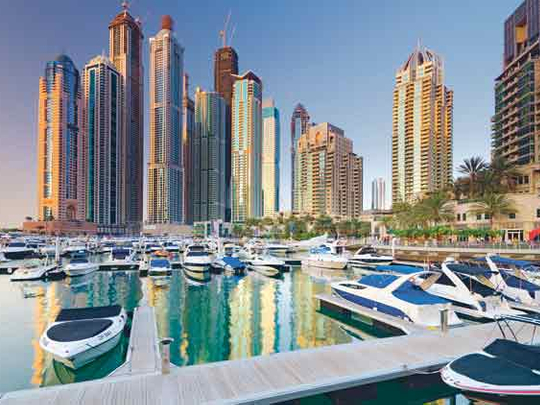
Although it has witnessed a decline in business, the marina segment has not been as badly affected as boat manufacturers and retailers in the last four years.
"Marinas have weathered the recession better than any sector of the marine industry, and likely will remain solid investments for years to come," Neil Ross announced at the International Marina & Boatyard Conference in January this year. Industry veteran and co-founder of the International Marina Institute, Ross is widely hailed as a ‘father of the marina industry'.
"Your marinas, not boat manufacturers, will remain the most economically stable sector of the entire recreational boating industry," Ross declared, while addressing a packed hall in Fort Lauderdale. He said that well-run marinas will remain a solid business model for delivering services and returning a reasonable income well into this century, and marina owners and operators must harness the opportunities that abound. "Use it to your advantage. Make it happen, folks," he urged.
Staying afloat
There are many reasons why marinas have managed to stay afloat, and even profitable. Most derive the bulk of their annual revenue from either dockage or dry stack storage, and as a revenue stream, this is more sustainable than active sales pertaining to retail, service and repair. It is not easy for owners of large boats to move their vessels to and from marinas, and marinas accommodating larger boats are thereby maintaining higher occupancy levels. Tighter budgets for development projects have led to new initiatives designed to attract consumer interest and revitalise profitability at lower costs.
But the industry has not escaped unscathed from the global downturn. Unemployment, which is currently at a record high, will continue to affect new business, just as mortgage defaults among the unemployed affects existing business. Credit card debt and defaulting is a related problem as an increasing number of boat owners find themselves unable to pay their berthing bills. These factors not only reduce expendable cash but also squeeze available credit.
Key challenges
The British Marine Federation's (BMF) Autumn 2011 Industry Trends Results says that business performance of the marine industry reflects conditions of the wider economy. The report lists current major business obstacles as "general economy and lack of customer confidence, often in reference to Eurozone issues". Other mentions continue to be consistent with surveys of the last three years, including lack of orders, lack of finance/credit availability, cash flow issues and delayed payments, increasing costs, fluctuating exchange rates and regulation and red tape.
Customers are increasingly discerning and expect quality as a way of life, and launching a quality product no longer provides a competitive advantage as much as sustaining quality services do. In a marketplace like the Middle East, with fiercely competing recreational interests, marina owners have to look at continually adding value to their offerings. Be it through renovation or redevelopment, older marinas will also have to look at creating new revenue streams. "The wider economic benefit of marinas in terms of value-added impact is estimated to be seven times larger than the core provision of berths," observes BMF.
Neil Ross says he expects to see more rental boats, more rack storage for boats under 45 feet, upland storage on mobile cradles for boats to 70 feet, but bigger, in-water slips (40 to 70 feet, with some to 120 feet and a few 250 feet and bigger). He also predicts a resurgence of small wooden runabouts, for sheer nostalgia in an era defined by fibreglass boats whose systems are more complex, more integrated, and more expensive to buy and repair. An abra, anyone?












